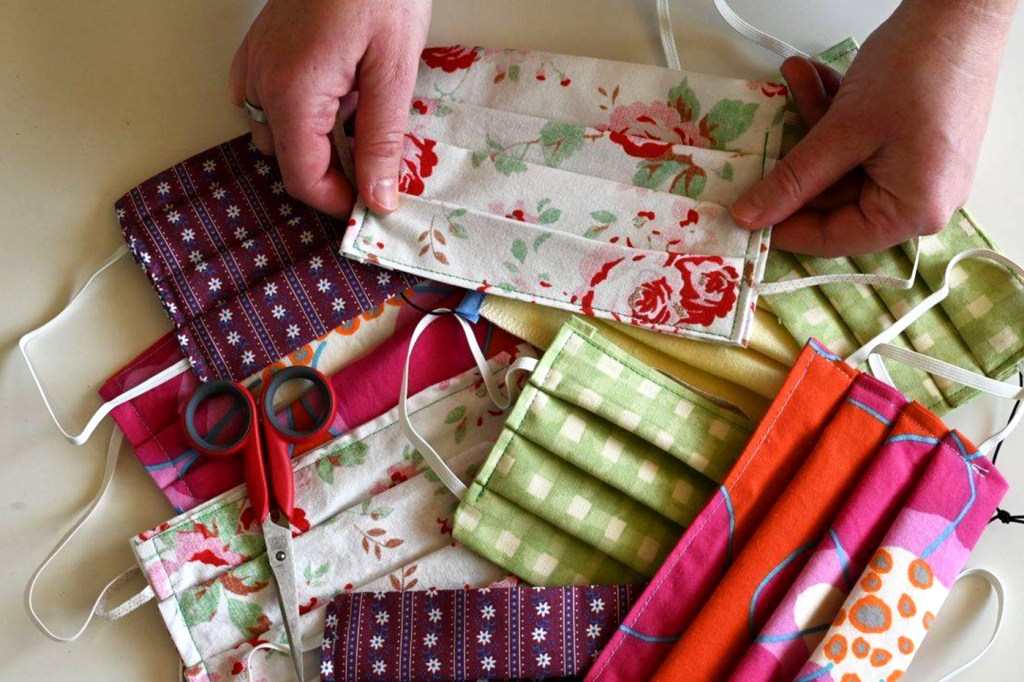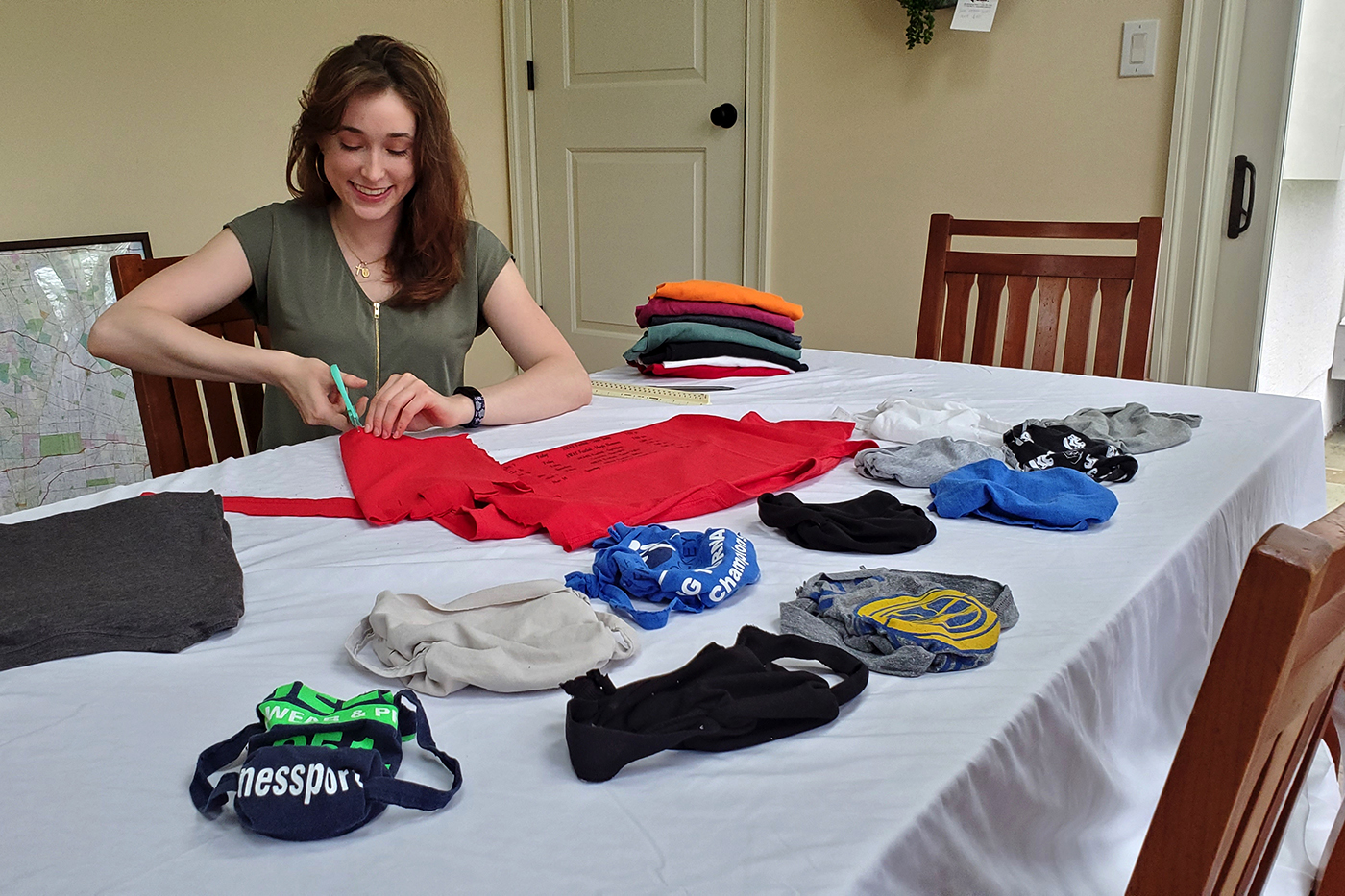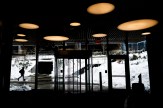Providing personal protective equipment to people in need ‘is not a sprint–it’s a marathon’

If you’ve got an old T-shirt, scissors, and a ruler, says Samantha Hall, you might as well have a mask—actually, make that two masks. No sewing skills—or machine—required.
Hall, a third-year health science student at Northeastern, is collecting face masks of all types—disposable and homemade—for people in need in Boston, as well as charities in Burundi, South Africa, Zambia, and Nepal.
Filled with a desire to do something about the shortage of personal protective equipment, Hall formed a group on Facebook to address this need as soon as she returned home in late March when Northeastern moved to online learning. She named the group the Million Mask Marathon.
“I feel that getting everyone access to personal protective equipment, and recovering from COVID-19 as a whole, is not a sprint, it’s more of a marathon,” says Hall. “I believed all along if every person just donated one mask, we would really be able to overcome the shortage of protective equipment.”
Within a few short weeks, 50 people—many of them students at Northeastern—had signed up to volunteer. And then more joined. Hall reached out to everyone in her own network, and asked her volunteers to do the same. She made a video on YouTube showing how to make a homemade mask in minutes. Soon, the masks, along with financial donations, started pouring in to Hall’s P.O. Box.

“You don’t need a sewing machine, you don’t need any fancy equipment, and you don’t need to put hours and hours of work into [making homemade masks],” says Hall. “You can just make one or a couple, and just from some old T-shirts that you might have or an old sheet. And that will really make a big difference.” Photo courtesy of Samantha Hall
The first shipment of 250 masks was dispatched to Rosie’s Place, a women’s shelter in Boston where Hall works as a volunteer. When the shelter closed its doors to volunteers amid the COVID-19 pandemic, Hall said she wanted to do something for the women, even if it meant helping from afar.
“A lot of the women there are elderly or they have insecure food and housing,” she says. “That makes them a vulnerable group to something like the COVID-19 pandemic. I thought that if I could organize a group of people to collect and donate masks to them, it would be a way to still support these women and help them get through this really difficult time.”
As the financial donations grew, allowing her to buy additional disposable masks, Hall started looking for other groups to support. She says she wanted to focus on those who help the underserved but are limited in ways to protect their own staff because they don’t have an adequate supply of personal protective equipment. She narrowed her list to four overseas hospitals and charities: Village Health Works in Burundi, the Ark City of Refuge in South Africa, the Coptic Mission hospital in Zambia, and Volunteer Corps Nepal.
Though she’s helped organize clothing drives in the past, Hall says this is the first time she’s organized something on this scale, and that once the pandemic ends, she’d like to expand the group, potentially turning it into a club on the Boston campus.
“My goal for the organization is to expand in a way that we can raise funds or explore other paths to support people who are in most need, perhaps doing clothing or food drives, and spreading awareness of how we can continue to promote public health measures,” she says.
But for now, the group is seeking additional washable masks, which are useful because they last longer and can be made with simple items found at home.
“I’ve been getting the word out that you don’t need a sewing machine, you don’t need any fancy equipment, and you don’t need to put hours and hours of work into this,” she says. “You can just make one or a couple, and just from some old T-shirts that you might have or an old sheet—whatever you have on hand. And that will really make a big difference.”
For media inquiries, please contact media@northeastern.edu.





